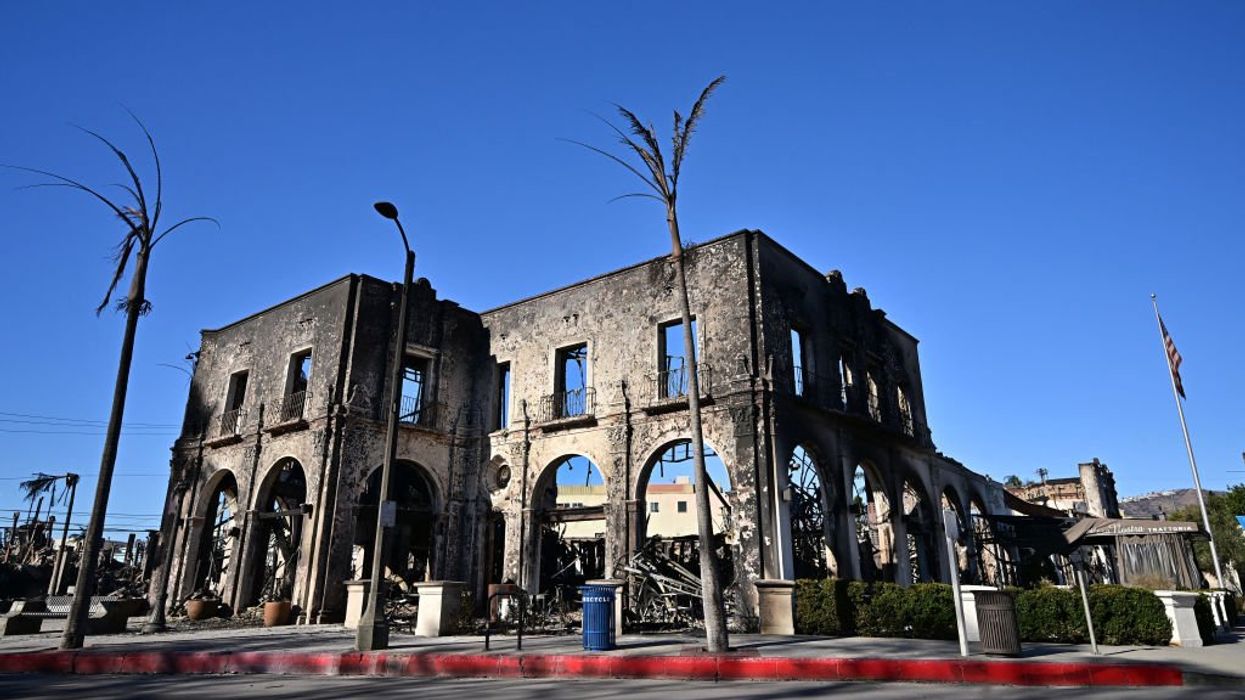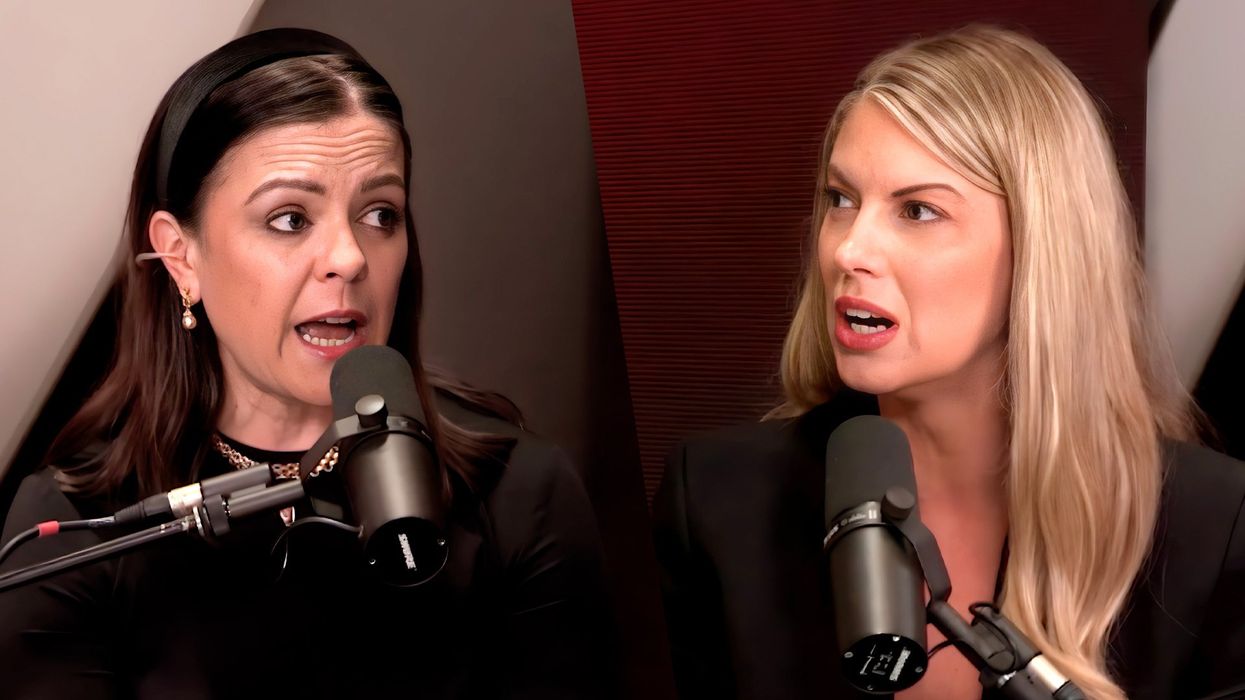For the second time in fewer than six months, Pope Francis has weighed in on global economic concerns, and for the second time he has shown himself to be more a European-style statist than one who embraces free will.
From "Evangelii Gaudium" (The Joy of the Gospel) to his recent address to the United Nations, Francis has made it a centerpiece of his young papacy to warn people against a naïve trust in markets. What he seems not to realize is that he is himself guilty of a naïve trust, not in the possibilities of markets, but in the likelihood of a political solution to global poverty.
One would think that a pope who speaks out so frequently about the evils of poverty and inequality would embrace economic freedom, but Pope Francis has taken precisely the opposite tack. In his recent United Nations address, he asserted:
As long as the problems of the poor are not radically resolved by rejecting the absolute autonomy of markets and financial speculation and by attacking the structural causes of inequality, no solution will be found for the world’s problems.
It is worth noting that, while it may fuel resentment and envy, especially after politicians have made their demagogic hay, there is nothing intrinsically wrong with inequality.
Equality of opportunity will always result in inequality of outcome. Some people work harder than others. Some people are smarter than others. And yes, some people are simply luckier than others.
 Pope Francis greets faithful as he leaves St. Stanislaus church in Rome, Sunday, May 4, 2014. Pope Francis celebrated a mass for the Polish community in honor of newly sainted Pope John Paul II. (AP Photo/Alessandra Tarantino) AP
Pope Francis greets faithful as he leaves St. Stanislaus church in Rome, Sunday, May 4, 2014. Pope Francis celebrated a mass for the Polish community in honor of newly sainted Pope John Paul II. (AP Photo/Alessandra Tarantino) AP
Poverty, on the other hand, is a real and pernicious evil. In the entire history of the human race, no one has ever died of inequality. But far too many have died of poverty. It would do us well not to lose sight of the real evil in our midst, even as the political elite, Pope Francis included, rail against an imagined one.
Through it all, Francis would have us reject what no society embraces: the absolute autonomy of markets.
Everywhere one looks in the civilized world, one finds markets controlled, to one degree or another, by governments. And while absolutely free markets cannot be addressed in this context, relative freedom most certainly can be. On this count, a serious look at the data is illuminating.
Across states, countries, and time, the economic data are remarkably consistent: Societies that enjoy more economic freedom experience less poverty, less unemployment, and yes, less income inequality. More economically free societies have higher median incomes, less environmental degradation, more gender equality, and less child labor.
And this isn’t because rich countries tend to be free. The same pattern emerges among the poorest countries. All of these socio-economic measures are better in poor countries that are more economically free than they are in poor countries that are less economically free. Economic freedom, come to find out, addresses both poverty and inequality.
 Among the poorest countries, those with less economic freedom have child labor rates that average twice that of those with more economic freedom. Credit: Antony Davies.
Among the poorest countries, those with less economic freedom have child labor rates that average twice that of those with more economic freedom. Credit: Antony Davies.
But Francis seems to be wholly, and sadly, unaware of this.
In his repeated call for a resolution to the (real) problem of poverty and the (imagined) problem of inequality, he warns us away from the only mechanism that can achieve his end, while embracing and emboldening the very organizations – governments – that have been largely responsible for perpetuating both poverty and inequality throughout history.
In identifying his goal, he follows in the compassionate footsteps of his predecessor, Saint John Paul. In proposing his solution, he follows more in the failed footsteps of Karl Marx. There is little doubt that Francis is a well-intentioned man. But he is no economist.

It bears repeating: Nowhere on Earth is there an absolute autonomy of markets, or even anything close to it. Even the United States, often held as a bastion of free markets, is only ranked 17th in the world for economic freedom (the top three are Hong Kong, Singapore, and New Zealand).
Meanwhile, there are many bastions of economic repression. Francis’ home country of Argentina is a notable example. Argentina ranks as the 16th least economically free country in the world, and is one of only three in the bottom 20 that is not located in poverty stricken sub-Saharan Africa (the other two are Ecuador and Venezuela).
It is possible that the Pope is hostile to economic freedom because he has never really experienced it.
Free markets, the most effective tool for fighting poverty humans have devised, have raised more people out of poverty than all of the world’s social programs combined.
Over the past two generations, while the number of people on Earth doubled, the number of people living in extreme poverty declined by 80 percent, largely as a result of increased economic freedom globally.
Today, almost all people in economically free countries can afford cures for diseases that killed the richest people only a century ago. The average person with a cell phone today has better and quicker access to more complete information than the President of the United States enjoyed just a generation ago. A plot of land that a century ago could feed one family today can feed hundreds of families.
These advances came not because of governments but in spite of them. They are the fruits of economic freedom.
[sharequote align="center"]These advances came not because of governments but in spite of them.[/sharequote]
It would seem that the head of the Catholic Church, an organization that appreciates that free will is a necessary precondition for charity, would be the first to champion free markets. Francis instead sidesteps them completely, preferring instead to view the world’s relatively well-off merely as caretakers for wealth their governments have yet to reappropriate.
Pope Francis recently tweeted that, “Inequality is the root of social evil.”
He is wrong. Coercion is the root of social evil. And government is the most effective tool for coercion humans have devised.
It is high time to acknowledge that free markets are the only mechanism at our disposal that will lift the world’s poor out of poverty. Real concern with the plight of the poor requires a sober examination of the data at hand. Until Pope Francis does this, his good intentions will pave the road to continued poverty, poverty that could have been wiped away by the gentle hand of free markets.
Follow @JamesRHarrigan and @antonydavies on Twitter.
–
TheBlaze contributor channel supports an open discourse on a range of views. The opinions expressed in this channel are solely those of each individual author.


 Pope Francis greets faithful as he leaves St. Stanislaus church in Rome, Sunday, May 4, 2014. Pope Francis celebrated a mass for the Polish community in honor of newly sainted Pope John Paul II. (AP Photo/Alessandra Tarantino) AP
Pope Francis greets faithful as he leaves St. Stanislaus church in Rome, Sunday, May 4, 2014. Pope Francis celebrated a mass for the Polish community in honor of newly sainted Pope John Paul II. (AP Photo/Alessandra Tarantino) AP
 Among the poorest countries, those with less economic freedom have child labor rates that average twice that of those with more economic freedom. Credit: Antony Davies.
Among the poorest countries, those with less economic freedom have child labor rates that average twice that of those with more economic freedom. Credit: Antony Davies.



